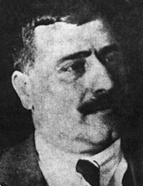

Some of his works include reproductions of photographs, lending a journalistic reportage quality to his historical accounts. This is particularly evident in his biographies of King Carlos, King Manuel, and the Northern Monarchy, which were published soon after the monarchy’s defeat. The inclusion of documentation and illustrations is accentuated by his often vehement prose. Though his writing can sometimes become tiresome due to his overzealous attempts to bring stories to life, it often achieves notable effects: “Palmela was always aware of what brewed in Lisbon and to a certain extent directed the conspiracy, such was the malleability of his talent, the certainty of his valour, the resolve of his will.” (Palmela na imigração [Palmela on immigration], [1915], 70). RM was a naturally gifted writer, with a rich vocabulary that he used to great effect, although given his prolific output, some lapses in proofreading are evident. His method remained consistent throughout his career. Between his first historical work, A Côrte de Junot em Portugal [Junot's Court in Portugal] (1910), and one of his later works, O Marquês de Pombal Desterrado (1939), there are no significant differences in his approach. He offered descriptive accounts of political events, some presented with remarkable detail, though explanations were rarely provided. His works are essentially stories, embellished with his expressive prose, which does not seek to interpret events but rather to point them out. RM's journalistic technique of reporting and chronicling carries over into his historical writing. His works resemble memoirs or chronicles more than conventional history, though the material he presents is undoubtedly valuable for historical research. The author himself believed his works could "aid in the formation of definitive contemporary history" because they are grounded in "impartial testimonies." He emphasised that, above all, it was vital to tell the truth and not shy away from it (O governo..., 9). This is evident in his embellished prose, as seen in his portrayal of Lisbon on 5 October: "She resembled a young girl, suddenly emancipated, simultaneously embodying madness, silliness, generosity, childish cries, and sudden seriousness.” (Idem, 11) RM could not ignore the reception of the Republic by the people of Lisbon: "The Republic was, in fact, at that time, something ideal, something perfect, something heart-warming, with people in the streets, flags hanging from windows, and the brightness of a sunny autumn day" (O governo..., 40). Such vivid descriptions continue throughout his work, often including meticulous details such as the quantities of meat, bread, and fish consumed at the camp in the Rotunda, where food was prepared on nine stoves (O governo..., 44). RM sought to counter monarchist criticisms of the Republic, particularly concerning legislation related to religious congregations.
This work is financed by national funds through FCT - Foundation for Science and Technology, I.P, in the scope of the projects UIDB/04311/2020 and UIDP/04311/2020.
